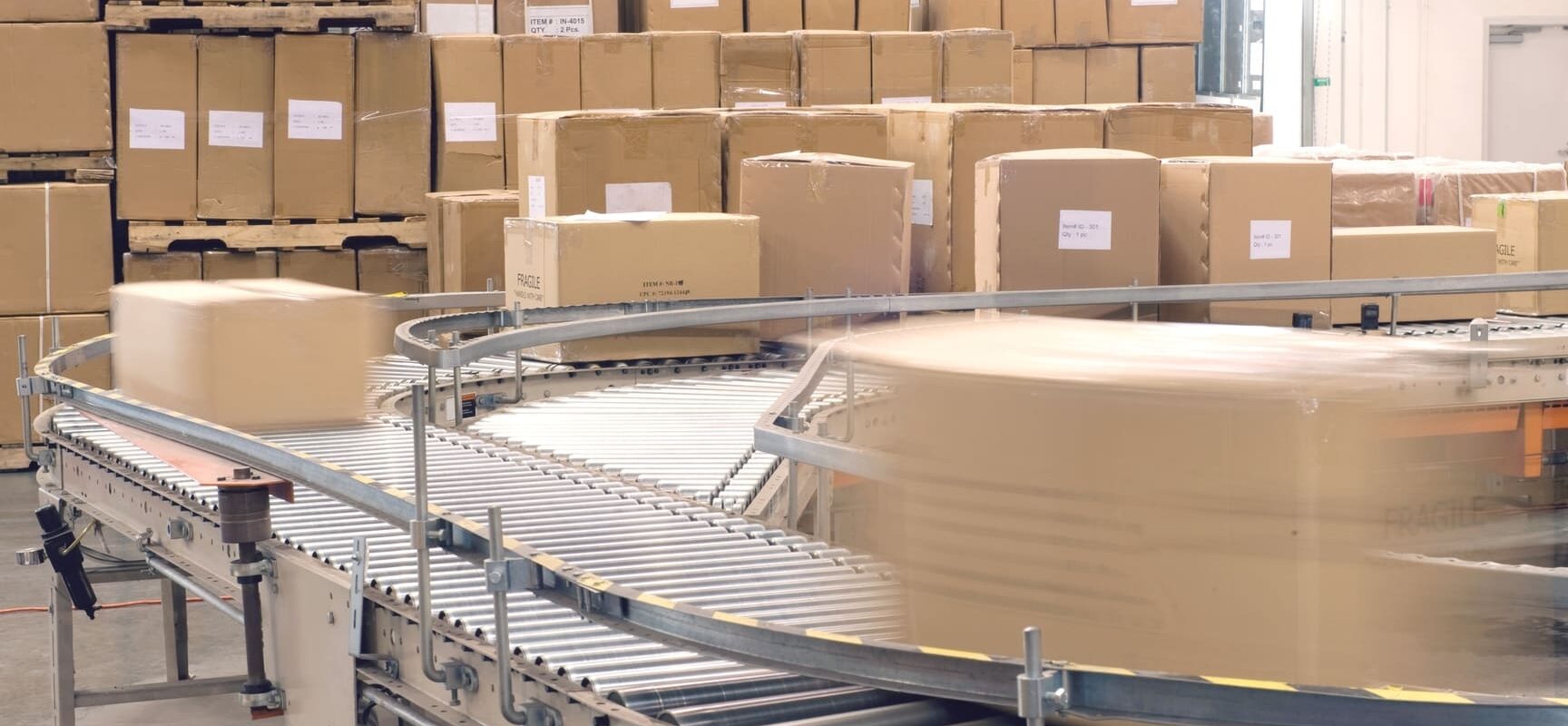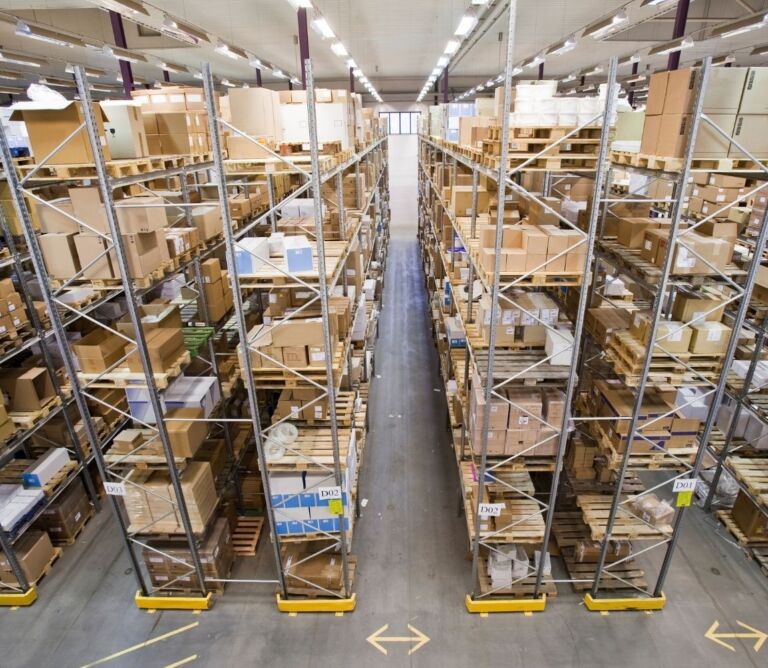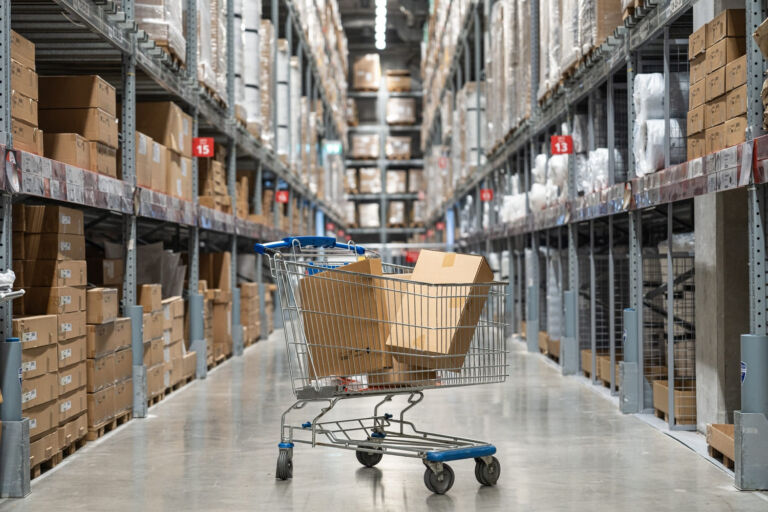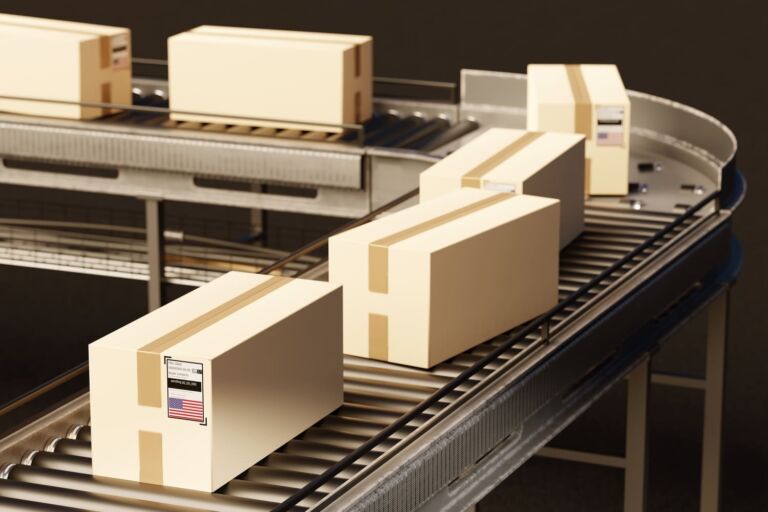What Do Fulfillment Centers Do and Why They Matter for Your Business

Fulfillment centers are third-party logistics (3PL) hubs that handle the entire order process for online retailers. In other words, they accept inventory from sellers, store it, and take care of picking, packing, and shipping products directly to customers. This end-to-end service frees businesses – especially small e-commerce and direct-to-consumer brands – from maintaining their own warehouses and staffing packing operations. In today’s competitive e-commerce environment, fulfillment centers help ensure customers receive orders quickly and reliably. By outsourcing these logistics tasks, companies can focus on product development, marketing, and growth.
Key Functions of a Fulfillment Center
Fulfillment centers serve as full-service logistics hubs for e-commerce brands. They perform several critical tasks to process online orders efficiently. First, they receive and store inventory: incoming products are inspected, logged into the inventory system, and organized on shelves or racks. When a customer places an order, fulfillment staff pick and pack the items – selecting the correct products from inventory and securely packaging them. Next, centers coordinate shipping and tracking: they print labels, hand packages off to carriers, and update order systems with tracking information. Finally, fulfillment centers handle returns and exchanges: returned merchandise is processed back into inventory or disposed of, and records are updated accordingly.
- Receiving & Storage – Inspect and scan incoming goods, then store them efficiently in the warehouse until needed.
- Inventory Management – Use advanced warehouse management systems to keep real-time stock levels accurate and to plan restocking as needed.
- Order Picking & Packing – Locate items for each order and pack them securely, often using automated systems or barcoded pick lists.
- Shipping & Tracking – Work with multiple carriers to ship packages and update tracking info, ensuring orders move out quickly.
- Returns Processing – Receive returned products, inspect and restock them, and refund or recycle merchandise as appropriate.
Fulfillment centers often integrate with e-commerce platforms (e.g. Shopify, Amazon, etc.) so that orders flow automatically from an online store to the warehouse. Modern facilities use technology – such as barcode scanners, inventory management software, and even robotics – to streamline these tasks and speed up processing.
Fulfillment Centers vs. Traditional Warehouses
While fulfillment centers and warehouses both store goods, their purposes differ. A warehouse generally provides long-term or bulk storage of products, often for wholesalers or manufacturers. In contrast, a fulfillment center is an active facility designed for fast turnover of goods. Fulfillment centers manage the entire order cycle – from receiving inventory to picking, packing, and shipping it – whereas a traditional warehouse primarily stores items and may only prepare them for shipment.
Key differences include:
- Primary Function: Warehouses focus on storing large volumes of inventory for extended periods. Fulfillment centers focus on rapid order processing and delivery, keeping inventory moving in and out quickly.
- Operations: Fulfillment centers are high-activity hubs handling continuous picking, packing, and shipping. Warehouses tend to be more static, with activity occurring only when goods arrive or are shipped out.
- Services Offered: A fulfillment center provides end-to-end order fulfillment (receiving, kitting, packing, labeling, shipping, and returns). A typical warehouse may offer space and basic inventory management, but usually does not handle individual order picking or last-mile shipping.
- Shipping Frequency: Fulfillment centers dispatch orders daily – even multiple pickups per day – to meet customer delivery promises. Warehouses often schedule less frequent freight pickups, shipping goods in bulk.
- Target Customers: Warehouses are ideal for businesses needing large-scale, long-term storage (e.g. B2B wholesalers). Fulfillment centers cater to e-commerce sellers and direct-to-consumer brands that require fast, reliable delivery to individual customers.
In short, fulfillment centers turn static storage facilities into dynamic distribution hubs that support fast shipping and high order volumes.
Who Benefits from Fulfillment Centers
Fulfillment centers benefit a wide range of businesses. They’re especially valuable for e-commerce and direct-to-consumer brands, small-to-midsize online retailers, subscription box companies, and even large retailers fulfilling bulk orders. Any company with a growing volume of orders – whether B2C or B2B – can use fulfillment services to scale. For example, a startup brand can avoid the high costs of running its own warehouse, while established businesses can handle peak season surges without hiring extra staff.
- E-commerce retailers and D2C brands that need fast, reliable shipping.
- Small and medium-sized businesses that want to reduce warehousing overhead.
- Subscription-box and crowdfunding projects with variable order volumes.
- Large retailers requiring distribution support or overflow warehousing.
By outsourcing fulfillment, these companies can manage high order volumes and meet customer expectations for speedy delivery. In fact, firms using fulfillment centers often see up to 50% faster order processing thanks to specialized systems and workflows. This efficiency lets businesses expand into new markets without logistical bottlenecks.
Benefits of Using a Fulfillment Center
Companies that leverage fulfillment centers enjoy numerous advantages:
- Lower Costs & Overhead: Outsourcing eliminates the need to rent or build large warehouses and to hire a full-time logistics staff. Fulfillment providers handle multiple customers under one roof, buying shipping materials and services in bulk and passing savings to clients. For example, combined shipping volumes allow 3PLs to negotiate discounted rates with carriers like UPS, FedEx, and DHL.
- Faster Order Fulfillment: Modern fulfillment centers use advanced technology and optimized processes to ship orders quickly. One study found that companies can reduce order processing time by up to 50% when using fulfillment centers. Quicker processing and nationwide distribution networks mean customers get their orders in record time, boosting satisfaction.
- Scalability and Flexibility: Fulfillment centers can handle sudden spikes in demand, seasonal sales, and business growth without requiring you to invest in more space or staff. They offer scalable operations – from a few orders a day to thousands – so you can expand into new regions and sales channels confidently.
- Focus on Core Business: Outsourcing logistics frees up your time and resources. Instead of packing boxes or managing a warehouse, you can focus on product development, marketing, and customer service. Using a fulfillment center lets founders “spend time on growing our business” instead of sorting orders.
- Expertise and Technology: Fulfillment providers are experts in warehousing and shipping. They use robust warehouse management systems, real-time inventory tracking, and automation to minimize errors. You gain access to their technology (e.g. live inventory dashboards, API integrations) and know-how without having to invest in it directly.
- Improved Customer Experience: Ultimately, faster, more accurate shipping leads to happier customers. By leveraging fulfillment centers, businesses can offer competitive delivery options (like two-day shipping) and reliable service that builds loyalty.
In sum, fulfillment centers help e-commerce and small business clients cut costs, ship orders faster, scale operations, and improve customer satisfaction – all of which support growth.
Choosing the Right Fulfillment Partner
When selecting a fulfillment center, consider the following factors:
- Location: Choose centers near your customer base or major shipping hubs to minimize transit times and costs. Distributed inventory – storing stock in multiple strategic locations – can ensure faster deliveries nationwide.
- Services Offered: Ensure the provider offers the services you need, such as specialized packaging, international shipping, returns handling, or kitting and assembly. The best 3PLs integrate with popular e-commerce platforms so orders flow automatically.
- Technology: Look for fulfillment centers with modern WMS software and platform integrations for real-time tracking and inventory management. Good 3PLs provide online dashboards or mobile apps so you can monitor orders and stock at any time.
- Reputation and Reliability: Partner with a provider known for accuracy and customer service. Read reviews or case studies to confirm they meet service-level expectations. As Olimp notes, proven reliability and efficiency are crucial for smooth fulfillment.
- Scalability & Flexibility: Make sure the fulfillment center can grow with you. Check that they have sufficient space and labor flexibility to handle sudden order spikes during peak seasons.
Choosing a fulfillment partner that aligns with your e-commerce needs can streamline logistics and support business growth.
Conclusion
Fulfillment centers are essential components of modern e-commerce supply chains. They provide the infrastructure and expertise to efficiently store, pick, pack, and ship products, allowing businesses to focus on growth and customer satisfaction. By outsourcing fulfillment to a professional center, companies can cut costs, improve delivery speed, and scale their operations without the overhead of running a warehouse. Understanding the role of fulfillment centers helps businesses make informed logistics decisions – from choosing the right partner to leveraging the latest automation – so they can meet today’s customer demands and grow effectively.
Frequently Asked Questions (FAQ) – OLIMP Warehousing
Q: Are fulfillment centers only for e-commerce businesses?
No, while e-commerce businesses are major users, fulfillment centers also serve B2B operations, handling bulk orders for retailers and other businesses.
Q: Can fulfillment centers handle international shipping?
Yes, many fulfillment centers have the capabilities to manage international orders, including customs documentation and global shipping logistics.
Q: How Do I Find the Best Fulfillment Center Near Me?
Choose a fulfillment center close to your customers to reduce shipping costs and times. Ensure it offers services like order packing and returns, supports scalability, and integrates with your eCommerce platform for smooth operations.
You may be interested in

What Does Backordered Mean? Full Guide for Shoppers & Retailers
Imagine paying for a must‑have gadget only to discover that it won’t ship for weeks. You’re not alone—today’s e‑commerce landscape sees an average backorder rate of about 8 %, and customers who encounter backorders are 30 % less likely to return. Backorders can make or break brand loyalty, yet they remain a necessary tool for […]

Best D2C Fulfillment Solutions for Branded Shipping 2026
The direct-to-consumer (D2C) landscape is evolving rapidly. Brands are no longer just selling products, they are creating experiences. Today’s consumers expect seamless, fast, and personalized delivery that reflects the brand’s identity. That’s why best D2C fulfillment solutions for branded shipping have become a critical differentiator for 2026. Companies that invest in modern, efficient, and customer-centric […]

Third‑Party Fulfillment: Save Money & Scale Faster
Outsourcing order fulfillment isn’t just a logistics decision; it’s a strategic move that can lower costs, save time and help you expand into new markets. According to the U.S. Chamber of Commerce, working with a third‑party fulfillment provider reduces costs by leveraging the provider’s infrastructure and negotiated carrier rates. At the same time, logistics costs […]
Ready to streamline your warehousing needs?
Request a quote today and discover how OLIMP's tailored solutions can optimize your operations